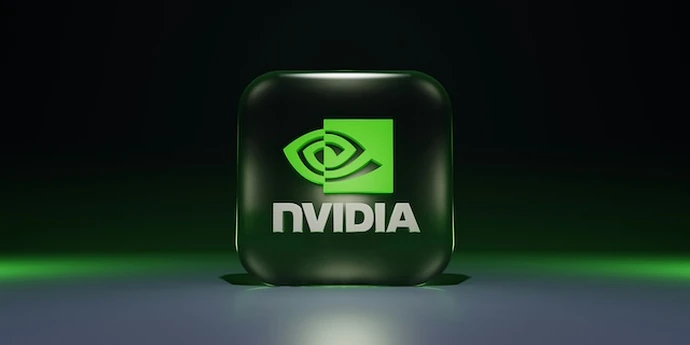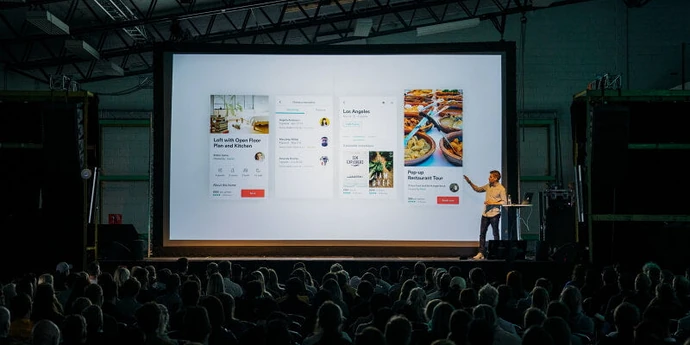Have you been rejected after interviewing at Meta? If so, consider this: we know lots of candidates who made it into Meta on their second, third, or even fourth attempt!
If you've been rejected at Meta but still want to reapply, then this article's for you. To put it together, we gathered insights from insiders and reviewed reports of real candidates who've had the same experience as you.
We'll dive into Meta's rejection process and the reasons the company may have rejected your application.
We'll also walk you through a strategy to help you ace your Meta interview once you're ready to reapply.
- Meta's rejection process and timeline
- Why has Meta rejected your application?
- What happens if you fail a Meta interview?
- You got rejected from Meta—here's what to do next
Click here to book a coaching session with a Meta ex-interviewer.
1. Meta's rejection process and timeline ↑
While Meta's complete interview process has 7 stages, candidates typically get rejected at one of four main decision points:
Let's look at each one in turn.
1.1 Rejection at the resume screening stage
You apply via Meta's Careers page or by emailing a Meta recruiter, and you don't hear back or get a rejection email.
What happened? A Meta recruiter has evaluated your resume and thinks you might not have enough of a chance to land a role. Thus, they might think it won't be worth giving you a call.
You may or may not get an automated rejection email. The truth is, individual recruiters receive so many applications that they simply don't have time to reply to everyone. According to our research, approximately 90% of candidates don't make it past the resume stage at Meta. It's an extremely competitive stage.
If they do get back to you (with a rejection or an invitation to move forward), it might take them a few days to a week.
For the same reason, it's difficult to get feedback or learn specifically why Meta has rejected your application at this stage.
If this is the case for you, you might want to polish your resume for Meta and your target role. Below is a list of our resume guides that you might find useful:
- Meta resume guide
- Tech resume guide
- Software engineer resume guide
- Product manager resume guide
- Engineering manager resume guide
- Machine learning engineer resume guide
- Technical program manager resume guide
To boost your chances of getting noticed, consider booking a resume review with one of our ex-Meta recruiters. They can help you tailor and fine-tune your resume to stand out the next time you apply.
1.2 Rejection at the recruiter screen stage
The recruiter calls you for a chat about your experience, motivations, etc., and then they decide not to take it further. You should get a rejection email from them letting you know this.
If you've not heard anything for a couple of weeks after the initial chat, email your recruiter asking for an update.
1.3 Rejection at the initial screen stage
The recruiter screen is typically followed by an initial screening, also known as the phone screen.
These screenings are done with a hiring manager or peer. Afterwards, your recruiter will send you an email to let you know if you're moving forward to the next stage, which is the final onsite interview loop.
At Meta, the turnaround is notably fast. Interviewers submit feedback within 24 hours of your phone screen, and recruiters typically notify candidates within 2 days.
In some cases, candidates have been notified they're moving to the onsite round just 30 minutes after completing their phone screen. That's the kind of speed Meta operates at.
Note that even if you get a rejection email, your recruiter might not give any reason why your Meta application has been rejected at this stage. If so, feel free to ask for feedback. You can skip to Section 3 for tips on how to ask for one.
1.4 Rejection at the final interview loop stage
After you've gone through your final interview loop, your interviewers will evaluate and score you based on your technical skills, problem-solving skills, communication, and alignment with Meta's values. They will then submit their feedback independently.
1.4.1 How feedback gets processed
Most interviewers submit feedback within 24 to 48 business hours. Your recruiter then synthesizes everything. If feedback is unanimous and positive, they're already setting you up for the next step. If it's mixed or contradictory, they may ask follow-up questions or request clarification from the panel.
1.4.2 The hiring committee review
Next comes the hiring committee. This is usually a cross-functional panel of senior peers, managers, and bar raisers who meet weekly (sometimes bi-weekly). They review candidate packets, resolve inconsistencies, and assess risk. This step adds extra scrutiny and time to the process, especially for senior roles (which require more careful vetting) or borderline evaluations (where the committee needs to deliberate on mixed feedback).
1.4.3 Timeline expectations
Meta advises that the hiring committee get back to candidates within 5 days of an onsite interview, though this can stretch depending on circumstances. Here are the typical timelines for the following roles:
- Software engineering (E3-E5): 3-7 days, assuming interview feedback is aligned
- PMs or TPMs: 7-14 days because feedback needs buy-in from more teams and stakeholders
If you haven't heard back within these timeframes, it's perfectly reasonable to follow up with your recruiter for an update.
1.4.4 What usually happens at the hiring committee stage
Candidates rarely fail at the hiring committee stage. This makes sense because Meta usually doesn't send you there unless you've already met the basic criteria to pass. In other words, if your onsite feedback was mostly negative, your recruiter and hiring manager will likely reject you before even sending your packet to the committee.
What does happen, however, is downleveling. After reviewing your application packet, the committee will determine the appropriate level based on the feedback on your interview performance. They might decide you're hireable but at a lower level than you applied for. For example, they may consider you for an E4 role instead of E5 (even if that might be the role you occupy at your current company).
Your recruiter should reach out to inform you of the decision. According to Meta, whether or not you receive an offer, you should hear back from the recruiter regarding the status of your application.
An exception to this is if the feedback from your onsite interviewers is generally not positive. In this case, your recruiter and hiring manager may decide not to send your candidacy to the hiring committee.
2. Why has Meta rejected your application? ↑
If you've been rejected at any stage of Meta's hiring process, there's a very high chance that it's down to one or a combination of the following reasons:
Note: The first 4 sections focus on technical interviews, which primarily apply to engineering roles. If you're applying for other roles, skip to Section 2.5.
2.1 You didn't complete the coding problems
For software engineering and technical roles, incomplete solutions are deal-breakers at Meta. You must complete both coding problems to pass. Partially solving one and only discussing the approach for the other will result in rejection.
It’s a common pitfall that really comes down to timing. Meta's phone screen is 45 minutes total. After 3-5 minutes of introductions, you have about 40 minutes for coding. You need to solve two problems, spending roughly 15-20 minutes on each (including discussing optimizations), with about 10 minutes left for Q&A at the end.
Not getting to the second question is almost always an automatic rejection. Even an easy LeetCode problem should take you no more than 10 minutes to solve, so if you're spending longer than that, you're likely not managing your time well enough.
The consequences are harsh. You can be rejected despite performing well on behavioral and system design rounds, simply because you didn't finish your coding questions. Failing even one critical area can outweigh strong performance elsewhere.
2.2 Your coding approach lacked the right signals
Getting the right answer isn't enough at Meta. If you’re applying for a technical role such as a software engineer, you need to demonstrate the full engineering process. According to Meta, you’ll be assessed on the following:
- Communication skills. During your Meta coding interviews, you’ll encounter ambiguous problems, so you’ll want to ask clarifying questions before going into problem-solving mode. You’re also expected to talk through your process while coding, and listen for hints when your interviewer offers them.
- Problem-solving skills. Your Meta interviewers will want to get an idea about how you approach complex problems.
- Coding structure and style. You’re not expected to code flawlessly. But what your Meta interviewers look for is your ability to translate your solutions into executable, organized code with the right logical structure.
- Verification. Lastly, your Meta interviewers want to see how you review your own code. If you spot a bug in your code, they want to see how you plan to work your way through the debugging.
Apart from these role-relevant skills, here are a couple of interview-specific skills you need to ace your Meta coding rounds, according to Thang, ex-Meta senior data engineer.
- Solving a coding problem in 20 minutes or less. In real life, you won’t be expected to solve coding problems within such limited time constraints. But for coding interviews, you’re only allotted 40 minutes to solve 2 problems. So you’ll want to time yourself during your practice to get used to the fast pace.
- Coding manually. Thang says that one of the most common mistakes candidates make is that they’re not prepared to run their code manually. During your Meta coding interviews, you’ll only be allowed to code on a plain text editor like CoderPad (for phone or virtual screens) or a whiteboard (for in-person interviews), so you’ll have to practice coding on these formats.
If you have optimal solutions but have issues with one or more of the above, you may get rejected. Interestingly, some candidates pass even with suboptimal code, given their code is clean and readable, and if they were able to communicate a strategy for arriving at the optimal solution, even if they ran out of time.
2.3 Your coding speed or code quality wasn't up to par
Meta has high standards for both the speed at which you code and the quality of your code.
One candidate was rejected due to "slow coding speed and quality of code," despite solving all problems. Remember, you're competing against other candidates who may be solving the same problems faster and with cleaner code.
This is particularly true at Meta, given their "move fast" culture. The company values engineers who can write clean, maintainable code quickly.
2.4 Your system design skills were insufficient for your target level
The bar for system design varies by level at Meta.
For mid-level positions like E4, system design is important but not the sole deciding factor. If you fail only the system design round while performing well in other areas, Meta may give you a follow-up interview focused on design.
So, if you were rejected outright without being offered a follow-up, it likely means your performance in other rounds (like coding or behavioral) was also weak.
For mid- to senior levels (E5 and above), system design becomes much more critical. Candidates are expected to demonstrate broader scope and deeper technical judgment. If you're applying for a senior role but your system design shows you're thinking at a more junior level, that's often grounds for rejection, even if your coding is strong.
Want to strengthen your system design skills? Check out our comprehensive system design interview guide to learn how to approach these problems at the right level for your target role.
2.5 You didn't demonstrate Meta's cultural values
Some candidates focus heavily on coding and system design prep, while treating behavioral interviews as something they can handle without practice. This mistake can cost you the offer.
One candidate shared that they underestimated the behavioral round entirely. While they spent months drilling algorithms, they walked into behavioral interviews unprepared and gave scattered, unstructured answers. They got the offer, but at a lower level than they'd applied for.
If behavioral performance can cause downleveling, it can certainly cause rejection, especially when combined with weak performance in other areas.
2.6 Your interview game wasn't up to scratch
If you're highly qualified but still failed your Meta phone screen or interview loop, it could be because you haven't properly prepared.
Remember, interviewing is a skill in itself. Being great at your job is not enough; you need to be great at interviews as well.
For example, if you're interviewing for a technical role, coming up with a great system design or solving a coding problem on your own is not enough. You need to talk the interviewer through your thought process, know how to ask clarifying questions, and listen well to feedback and hints as you work through a problem.
And then there's the time element. You could do everything right, but if it takes you thirty minutes and other candidates got there in ten, that could very well work against you.
Or perhaps what felt like a solid answer was, on reflection, lacking in code quality: poor structure, too superficial, or didn't consider the relevant trade-offs.
Suffice it to say, there's a lot you need to get right in interviews. Not only do you need to demonstrate your expertise, but you also need to show your communication and collaboration skills.
2.7 You did well, just not as well as other candidates
Meta is extremely selective, so you can perform well in your interviews and yet still get rejected.
When you ask for feedback, recruiters often explain that Meta doesn't have a "pass/fail" system. Instead, they choose other profiles that were stronger than yours.
This is particularly frustrating because it means you can solve all the coding problems, give solid system design answers, and still get rejected simply because you're competing against exceptional candidates. The hiring committee compares you against everyone else who’s interviewing for similar roles during the same time period.
Take note, though, the interview process can be somewhat random. Internal politics, hiring manager preferences, and even which specific interviewer you get can influence the outcome. A single interviewer's strong negative opinion can sometimes override otherwise positive feedback.
2.8 Visa or immigration constraints
Sometimes, rejections have nothing to do with your performance. Visa sponsorship limitations can derail your candidacy even after strong interviews.
One candidate progressed through multiple rounds—recruiter call, screening assessment, technical interview, and cultural fit assessment. After filling out an immigration questionnaire, the recruiter indicated everything looked positive and they were just waiting for the immigration team's response. Then came a rejection email stating they "can't move forward with your profile, and can't share the reason."
While Meta didn't explicitly confirm it, this vague rejection strongly suggests visa sponsorship issues.
Another candidate's interview ended abruptly when the interviewer asked about their location in Tbilisi, Georgia. The interviewer explained that Meta couldn't sponsor a work visa due to time and budget constraints, and the interview concluded within minutes.
These rejections are frustrating because they're unrelated to your technical abilities or interview performance. Unfortunately, Meta rarely explicitly states that visa issues were the reason for rejection, leaving candidates uncertain about what went wrong.
3. What happens if you fail a Meta interview? ↑
In this section, we'll answer some of the most frequently asked questions about what happens if you get rejected by Meta.
3.1 Will your Meta recruiter send a rejection email or call to reject?
The short answer is: it depends on the recruiter and the stage at which you were rejected.
In most cases, you'll receive a rejection email. This typically comes as a short message that doesn't include detailed feedback. The email might say something like:
"Although this role didn't work out, we may contact you if we come across another opening that we think could interest you and may be a good match for your skills and experience."
Here's what a full rejection email typically looks like:
(Source)
In some cases, particularly after an onsite interview, the recruiter might schedule a call to deliver the rejection. During these calls, they rarely provide detailed feedback, though they might give you high-level insights if you ask directly (more on this in the next section).
3.2 Can you ask for feedback on your rejection from Meta?
It's not standard practice for Meta to offer detailed feedback to candidates they've rejected. This is to minimize the potential for legal issues.
However, your recruiter may be able to give you some feedback if you ask them the right questions. Instead of asking the recruiter directly why you were rejected, allow them to be less explicit.
Say that you'd like to study ahead of reapplying and ask them which areas they think you need to improve on. Listing the topic areas you interviewed on may make it easier for them to pick one.
For example, if you're a software engineer, you could say something like:
"I'd like to do some studying before reapplying again, and I'm trying to determine where I should best devote my energies. Do you have any thoughts on what I should focus on most? Coding, algorithms, system design, or behavioral?"
This allows the recruiter to honestly identify the area(s) you were weaker in, without going against the "no detailed feedback" protocol.
Even if you don't plan on re-applying to Meta, we strongly recommend you try and get this feedback. It will be valuable insight for the next time you prep for an interview at any company.
3.3 Can I apply to Meta after rejection?
Absolutely. In fact, Meta's system is designed to support reapplications.
When a recruiter informs you of rejection, they often mention that whenever a new position opens up, Meta's system will automatically trigger your resume and interview experience to recruiters. So, a recruiter may reach out to you and schedule interviews again if there's an opportunity.
How long should you wait? The cooldown period is 12 months. Even after a phone screen rejection, your recruiter will likely tell you to wait for 12 months.
However, here are some nuances to keep in mind:
- Some recruiters mention 6 months to a year rather than a strict 12 months
- If rejected before the final round, the cooldown may be shorter
- You could still be contacted by recruiters before the cooldown period ends
When in doubt, ask your recruiter directly about your specific timeline.
3.4 What are the possible outcomes after a Meta final interview?
There are four common outcomes after Meta's final interview:
- You get an offer. Typically, your recruiter will call you. They'll share the good news verbally, walk through the comp structure, and follow up with a written packet.
- You enter team-matching. Occasionally, you pass the interview but haven't been matched to a specific team. You'll stay "warm" while managers look for a fit. This can take 1-3 weeks. Note that you won't have a choice regarding the team; it would depend on which team has an opening.
- You're waitlisted. Your profile is strong, but another candidate edged you out. Recruiters may say they'll keep you in mind, and if they say it, they usually mean it. Waitlisted candidates can get offers weeks later when new headcount opens up.
- You're rejected. This typically comes via email. It's short and doesn't include feedback (Meta policy). A rejection doesn't mean you weren't good, just that something didn't align this time.
If you do pass the interviews and enter team matching, the process can be complex. Check out our complete guide to Meta's team matching process to understand what to expect.
3.5 What if I feel the rejection was unfair?
It's entirely possible that the interviewer was just having a terrible day (or even week) and failing everyone they came into contact with. This usually isn't the case at Meta, but at the end of the day, Meta is a huge company with thousands of interviewers. It can't quality control each one for every interview they do.
Some candidates report that all it takes is one person who didn't like something you said to vote no, or an internal hiring discussion to derail your chances.
Unfortunately, there's not much you can do about this. Meta's interview process, while structured, still involves human judgment and subjective decision-making. If you genuinely believe you performed well and the rejection doesn't make sense, you have a few options:
- Ask for feedback. Use the approach outlined in Section 3.2 to try to understand which area was weak. If the recruiter can't point to a specific weakness, that might suggest the rejection was more about fit or timing than performance.
- Wait and reapply. If you received what's essentially a no without explanation, you may be eligible to interview again in 6 months rather than the full 12-month cooldown period.
- Focus on what you can control. Even if the rejection felt unfair, use it as motivation to strengthen your skills for the next attempt. When you reapply, you'll be an even stronger candidate.
Once you've identified your weak areas, commit to deliberate practice in those specific domains. The difference between candidates who succeed on their second attempt and those who don't often comes down to whether they actually fixed what broke the first time.
4. You got rejected from Meta — here's what to do next ↑
It's always tough to get rejected by a top tech company like Meta, especially after such a long and difficult interview process.
But that shouldn't stop you from reapplying, especially if you feel strongly about working at Meta.
Here are the steps we recommend taking if you want to get a job at Meta after being rejected:
4.1 Ask for feedback
We've explained the technique in Section 3.2: Ask which areas you should focus on rather than demanding to know why you failed. Once you get that feedback, take it seriously and build your entire prep strategy around it.
- If the feedback points to a skills gap: You may need to wait longer before reapplying. For example, if your recruiter hints that you lack the technical depth or scope for the level you applied to, you'll need time, maybe months of actual work experience, building that depth.
- If the feedback suggests you were close: Feedback like "Your coding was good, but communication needs work" means you're nearly there. In these cases, targeted preparation over 3-6 months can make the difference. You might be eligible to reapply after 6 months instead of waiting the full year.
- Don't make the same mistakes twice: Meta keeps records of your interview performance. If you reapply without addressing the specific weaknesses from your first attempt, the hiring committee will see that you haven't improved, and that could lead to a second rejection.
Do make sure you've addressed your interview weaknesses before shooting your shot again. In such cases, booking a few sessions with a Meta interview coach will greatly help.
4.2 Get motivated
If you're feeling demotivated, try to change your perspective regarding your rejection. There are countless stories of people who got into Meta after being rejected.
The key is to view rejection as feedback and an opportunity to improve, not as a final judgment on your abilities.
We've worked with plenty of candidates on our coaching platform who failed their Meta interviews the first time around. They then got an offer after working with a Meta interview coach.
4.3 Prepare better this time
Did you put in enough hours? For roles like software engineering, successful candidates usually do 100+ hours of prep.
Using the right prep resources is also important. Choose the relevant Meta interview guide from the list below, and use it as the base point for your interview prep:
Role-specific interview guides
- Meta software engineer interview
- Meta product manager interview
- Meta engineering manager interview
- Meta E4 interview
- Meta E5 interview
- Meta E6 interview
- Meta machine learning engineer interview
- Meta production engineer interview
- Meta research engineer interview
- Meta front-end engineer interview
- Meta account manager interview
- Meta product designer interview
- Meta product marketing manager interview
- Meta rotational product manager interview
- Meta technical program manager interview
- Meta data scientist interview
- Meta data engineer interview
If your recruiter has hinted that you've done poorly on certain rounds, you can dive deeper into them, starting with the relevant interview guide below:
- Meta coding interview
- Meta system design interview
- Meta phone screen interview
- Meta product sense interview
Additionally, here are some specific areas you can focus on based on common rejection reasons.
If you were rejected for incomplete coding problems:
- Practice solving two LeetCode problems in 40 minutes: This mirrors the actual Meta phone screen format, where you'll have roughly 40 minutes of coding time after introductions. Build the muscle memory of moving quickly between problems without sacrificing accuracy.
- Time yourself strictly: Aim for 10-15 minutes per easy problem, 15-20 minutes per medium. Use a timer during every practice session to simulate real pressure. If you consistently run over these benchmarks, you need to drill more fundamentals until pattern recognition becomes automatic.
- Don't over-explain or waste time if you know the solution: Candidates often lose precious minutes narrating obvious steps. State your approach clearly, then code. Save detailed explanations for when you're stuck or considering trade-offs.
If you were rejected for system design:
- Study system design appropriate for your target level: The expectations scale significantly with level. An E4 needs breadth, while an E6 needs depth and the ability to make nuanced architectural decisions. Make sure you're studying material that matches the role you're targeting.
- Practice designing systems end-to-end, not just components: Many candidates can explain a load balancer or database, but struggle to tie everything together. Work through complete designs from client request to data storage and back, including how components interact and where bottlenecks might emerge.
- Work on articulating trade-offs clearly: Meta interviewers want to hear your reasoning behind decisions. Practice explaining the pros and cons of your choices out loud.
- Get feedback on your designs from experienced engineers: Self-study will only catch obvious mistakes. You need someone who's been through the process to tell you when your design is overengineered, under-scoped, or missing key considerations that interviewers expect at your level.
If you were rejected for behavioral:
- Practice your behavioral answers as much as you practice algorithms: Many technical candidates spend 90% of their prep time on coding and wing the behavioral round. This is a mistake. Behavioral performance can cause downleveling or outright rejection, even if your technical skills are strong.
- Use structured frameworks like IGotAnOffer's SPSIL method: A framework keeps your stories concise and focused. Without one, you risk rambling or leaving out critical details like the actual impact of your work, which is what Meta interviewers are evaluating
- Have 8-10 polished stories ready that demonstrate Meta's values: You should be able to speak to leadership, collaboration, handling ambiguity, and impact without scrambling for examples. Prepare stories in advance and rehearse them so they feel natural, not scripted.
- Don't give scattered, unstructured answers: Interviewers notice when you're thinking out loud versus delivering a prepared narrative. Disorganized answers suggest poor communication skills, which is a red flag for collaboration-heavy roles at Meta.
Once you've identified your weak areas, commit to deliberate practice in those specific domains. The difference between candidates who succeed on their second attempt and those who don't often comes down to whether they actually fixed what was "broken" the first time.
4.4 Practice mock interviews with peers
Preparing by yourself is important, but it's not enough. So often, good candidates are rejected because they didn't sufficiently practice interviewing.
If you have friends or peers who can do mock interviews with you, that's an option worth trying. It's free, but be warned, you may come up against the following problems:
- It's hard to know if the feedback you get is accurate
- They're unlikely to have insider knowledge of interviews at your target company
- On peer platforms, people often waste your time by not showing up
For those reasons, many candidates skip peer mock interviews and go straight to mock interviews with an expert.
4.5 Practice with experienced Meta interviewers
In our experience, practicing real interviews with experts who can give you company-specific feedback makes a huge difference.
Find a Meta interview coach so you can:
- Test yourself under real interview conditions
- Get accurate feedback from a real expert
- Build your confidence
- Get company-specific insights on what Meta interviewers look for
- Learn how to tell the right stories, better
- Save time by focusing your preparation
Landing a job at a big tech company often results in a $50,000 per year or more increase in total compensation. In our experience, three or four coaching sessions worth ~$500 make a significant difference in your ability to land the job. That's an ROI of 100x!
Click here to book mock interview sessions with an ex-Meta interviewer.















